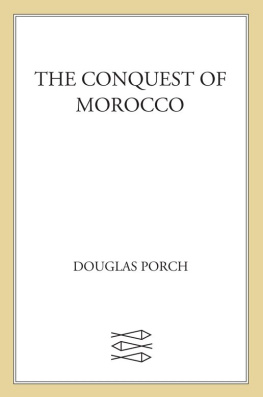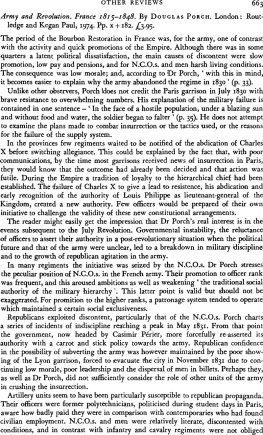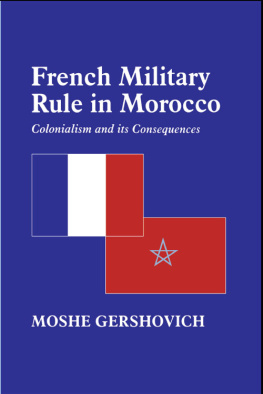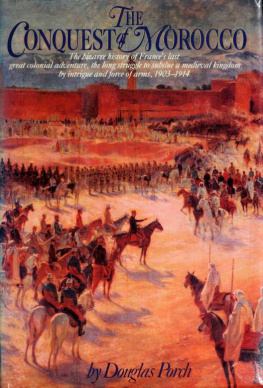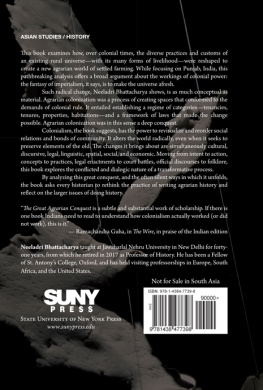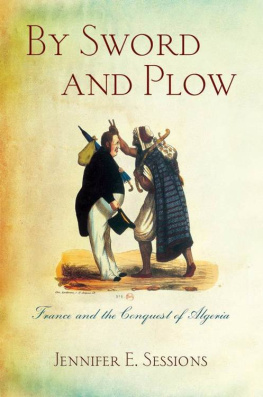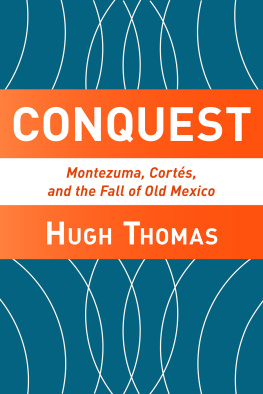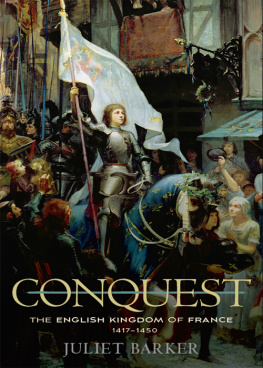sorry something went wrong loading your content. Check the table of contents or try paging forward. Or contact us at support@bookshout.com
sorry something went wrong loading your content. Check the table of contents or try paging forward. Or contact us at support@bookshout.com
sorry something went wrong loading your content. Check the table of contents or try paging forward. Or contact us at support@bookshout.com
sorry something went wrong loading your content. Check the table of contents or try paging forward. Or contact us at support@bookshout.com
THE ROAD TO ZOUSFANA
Colonies can be conquered by accident. This may at first appear unlikely when we contemplate the immense colonial empires that Europe once possessedsuch elaborate constructions must surely be the product of a policy, of a design, of economic calculation. But if you believe that, you may well be deceiving yourself. Algeria, to take one example, came to be the property of France by one of those flukes with which history abounds.
In 1828, Hussein, the dey of Algiers, struck the French consul, Pierre Deval, with his fly whisk in a fit of temper. The French government reacted in the classic fashion by sending an army. In fact, King Charles X of France hoped that by making a fuss over this insult to the national honor he might distract public attention from a series of planned domestic political measures that were bound to prove unpopular. In this, he was to be disappointed. In three bloody days in late July 1830, his government was overthrown and he was forced to flee for his life into exile, the last Bourbon king ever to rule France. But the French soldiers were already in Algiers. Stranded there without a government to issue orders, they behaved in the way soldiers often do when left to their own devices: they fought. Tribes and cities were gradually brought within the pale of French military administration and within fifteen years France had acquired, for better or worse, a colony.
By the turn of the century, French soldiers had in this same unplanned, ad hoc manner brought vast tracts of land in Africa and Indochina under the tricolor. However, one country had so far escaped their net: Morocco.
Morocco in 1900 was a country because the Sultan said it was. For Europeans who knew anything about the place, this claim appeared preposterous. Morocco was a land of tremendous contrastsgeographic, racial, linguisticover much of which the Sultan exercised only nominal control. What gave it unity, at least on a map, was that it was virtually the only patch of Africa which had yet to be absorbed into one of those sweeping areas of pink, or yellow, or whatever color a European country used to delineate its empire. Morocco remained a cartographic anomaly, an untidy splash of noncolonial independence.
Morocco is dominated by its mountains. Those of the Rif rise out of the Mediterranean like an impenetrable barrier: A naked, steep, savage-looking rocky wall. wrote the German explorer Gerhard Rohlfs, who visited Morocco in the 1860s. From the sea, the Rif appeared lifeless, at the most, some lone cupola serving as the tombstone of a saint, shows that here human beings have lived and died. But its scrub-covered slopes were very much inhabited. Fierce Berber tribesmen kept the Rif both ungovernable and inaccessible. In 1888, Walter Harris, an English traveler who settled in Tangiers, claimed to be the first Christian to visit Chechaoun, one of the chief towns of the Rif and certainly its most picturesque. Nestled at the foot of a six-hundred-foot rock precipice, the sloping red-tiled roofs of its houses give Chechaoun an appearance far more Spanish than African, and one altogether unique in Morocco. But Harris enjoyed few of its charms. At the news that a Christian had infiltrated Chechaoun, the streets filled with men intent on capturing the intruder, who was forced to hide in the house of one of his servants until nightfall, when he made his escape.
To the south, the stark, rocky spines of the Rif drop to the Taza corridor, the main passage between east and west Morocco, before the land again rises in successive ridges to the Middle Atlas. The large cedar forests and well-watered western slopes of this range make it one of the most pleasant regions of Morocco. It is here that the French conquerors would establish their best-known hill stations at Ifrane and Azrou, so that in summer wives and children could escape the baking heat of the plains below. These agreeable, tree-clad mountains rise to meet the High Atlas to the south. It is the snow-capped peaks of this range that curve majestically around the southern capital of Marrakech before they fall to the Atlantic above Agadir. The upper slopes of the High Atlas, which rise to over thirteen thousand feet, are virtually devoid of vegetation. Lower down, villages of square mud houses cling to the sides of precipitous valleys carved out by the melting snows.
Moroccos mountains divide the country both geographically and climatically. To the west, they cradle a well-watered land of plain and plateau, as fertile as a garden, which stretches over three hundred miles from Marrakech in the south to the southern slopes of the Rif in the north. In the spring, this land is covered by a green felt of young wheat which ripens into a yellow carpet as summer progresses. Today, the light brown of the summer landscape is often broken by the blue-green groves of olive and the deeper green of citrus trees. Before the arrival of the French, however, the anarchy that ruled Morocco meant that this land was hardly cultivated, but given over almost exclusively to small herds of goats and sheep driven by nomadic tribesmen. This political instability placed severe limitations on the Moroccan economy, and on the Moroccan diet. Wheat ground into small grains of semolina which are then steamed formed the staple of the Moroccan dicouscous. Couscous is served with mutton boiled together with any garden vegetables in season into a spicy stew. Chicken and eggs were also available in the small towns that served as markets, as was tea, which, in the nineteenth century, became the main beverage in Morocco, brewed with mint and highly sweetened. However, Morocco did have a well-established culinary tradition, which meant that the meals of the rich could be elaborate affairs indeed.
The lands to the east and south of the Atlas are far more wild and primitive than those to the west. The east has none of the large cities such as Fez, Meknes, Rabat or Tangiers, which provide both large markets and centers of government and Arab culture. Nor can eastern Morocco support them, for the mountains block the rain-laden westerly winds from the Atlantic and keep the annual rainfall in the east and south to under eight inches a year. This is the beginning of the steppe, the series of mountains and plateaux which run, arid and almost unbroken, across the Maghreb to Tunisia, bounded on the north by the Mediterranean and on the south by the sand wastes of the Sahara. Human habitation is concentrated along deep river valleys such as the Dra, the Guir and the Ziz in large, fortresslike buildings called ksar. Although dry for much of the year, these rivers nevertheless provide enough moisture for the date palms which thread the valleys and oases for the nomads who wander with their sheep, goats and camels over the near-barren land.
The mountains also divide the country culturally, into Arab and Berber. The term Berber commonly refers to the original, light-skinned inhabitants of the Maghreb who retreated into the mountains in the face of the two Arab invasions of the seventh and eleventh centuries. But the difference between Arab and Berber is far more linguistic or cultural than racial. The Berber population in the western lowlands was absorbed by the invaders, while the mountain folk resisted both Arabic and Islam, retaining in varying degrees their animist religious practices and their language, Shilha. The Arabs of the plain both despised and feared the warlike hill tribes: Honey is not grease, durra is not food, Shilha is not a language, runs an Arab saying.

